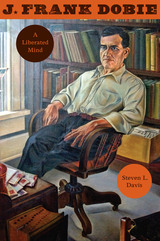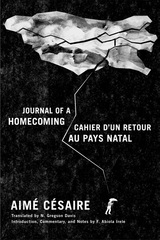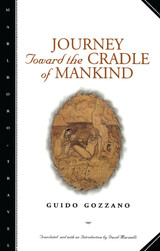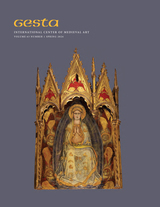7 start with J start with J

The first Texas-based writer to gain national attention, J. Frank Dobie proved that authentic writing springs easily from the native soil of Texas and the Southwest. In best-selling books such as Tales of Old-Time Texas, Coronado's Children, and The Longhorns, Dobie captured the Southwest's folk history, which was quickly disappearing as the United States became ever more urbanized and industrial. Renowned as "Mr. Texas," Dobie paradoxically has almost disappeared from view—a casualty of changing tastes in literature and shifts in social and political attitudes since the 1960s.
In this lively biography, Steven L. Davis takes a fresh look at a J. Frank Dobie whose "liberated mind" set him on an intellectual journey that culminated in Dobie becoming a political liberal who fought for labor, free speech, and civil rights well before these causes became acceptable to most Anglo Texans. Tracing the full arc of Dobie's life (1888–1964), Davis shows how Dobie's insistence on "free-range thinking" led him to such radical actions as calling for the complete integration of the University of Texas during the 1940s, as well as taking on governors, senators, and the FBI (which secretly investigated him) as Texas's leading dissenter during the McCarthy era.

John Dos Passos - American Writers 20 was first published in 1962. Minnesota Archive Editions uses digital technology to make long-unavailable books once again accessible, and are published unaltered from the original University of Minnesota Press editions.


Ralph Waldo Emerson, the man and thinker, will be fully revealed for the first time in this new edition of his journals and notebooks. The old image of the ideal nineteenth-century gentleman, created by editorial omissions of his spontaneous thoughts, is replaced by the picture of Emerson as he really was. His frank and often bitter criticisms of men and society, his “nihilizing,” his anguish at the death of his first wife, his bleak struggles with depression and loneliness, his sardonic views of woman, his earthy humor, his ideas of the Negro, of religion, of God—these and other expressions of his private thought and feeling, formerly deleted or subdued, are here restored. Restored also is the full evidence needed for studies of his habits of composition, the development of his style, and the sources of his ideas.
The second volume prints the exact texts of nine journals and three notebooks. It reveals the shape of some of Emerson’s enduring interests, in embryo “essays” on the moral sense, moral beauty, taste, greatness and fame, friendship, compensation, and the unity of God and the universe. Restored from oblivion are suppressed passages on the Negro and revelations of acute melancholy and rebelliousness. These records of his developing thought are also the history of his early obscurity, when the fame he sought was still painfully remote.

Ralph Waldo Emerson, the man and thinker, will be fully revealed for the first time in this new edition of his journals and notebooks. The old image of the ideal nineteenth-century gentleman, created by editorial omissions of his spontaneous thoughts, is replaced by the picture of Emerson as he really was. His frank and often bitter criticisms of men and society, his “nihilizing,” his anguish at the death of his first wife, his bleak struggles with depression and loneliness, his sardonic views of woman, his earthy humor, his ideas of the Negro, of religion, of God—these and other expressions of his private thought and feeling, formerly deleted or subdued, are here restored. Restored also is the full evidence needed for studies of his habits of composition, the development of his style, and the sources of his ideas. Cancelled passages are reproduced, misreadings are corrected, and hitherto unpublished manuscripts are now printed. The text comes as close to a literal transcription as is feasible. A full apparatus of annotation, identification of quotations, and textual notes is supplied. Reproduced in this volume are twelve facsimile manuscript pages, many with Emerson’s marginal drawings.
The first volume includes some of the “Wide Worlds,” journals begun while Emerson was at Harvard, and four contemporary notebooks, mostly unpublished. In these storehouses of quotation, juvenile verse, themes, and stories are the first versions of Emerson’s “Valedictory Poem,” Bowdoin Prize Essays, and first published work. Together they give a faithful picture of Emerson’s apprenticeship as an artist and reveal the extent of his hidden and frustrated ambition—to become a writer.

The extent of Gozzano's travels--to Ceylon, Goa, Agra, Jaipur--makes one wonder how the writer could visit all or even most of the places he so vividly describes. "I did not honestly think I would find so much of it intact," the spellbound Gozzano repeats to himself, before what he must shortly recognize as prodigious evidence of decay.

Justice and Rights is a record of the fifth "Building Bridges" seminar held in Washington, DC in 2006 (an annual symposium on Muslim-Christian relations cosponsored by Georgetown University and the Church of England). This volume examines justice and rights from Christian and Muslim perspectives—a topic of immense relevance for both faiths in the modern world, but also with deep roots in the core texts of both traditions.
Leading scholars examine three topics: scriptural foundations, featuring analyses of Christian and Muslim sacred texts; evolving traditions, exploring historical issues in both faiths with an emphasis on religious and political authority; and the modern world, analyzing recent and contemporary contributions from Christianity and Islam in the area of freedom and human rights.
READERS
Browse our collection.
PUBLISHERS
See BiblioVault's publisher services.
STUDENT SERVICES
Files for college accessibility offices.
UChicago Accessibility Resources
home | accessibility | search | about | contact us
BiblioVault ® 2001 - 2024
The University of Chicago Press









